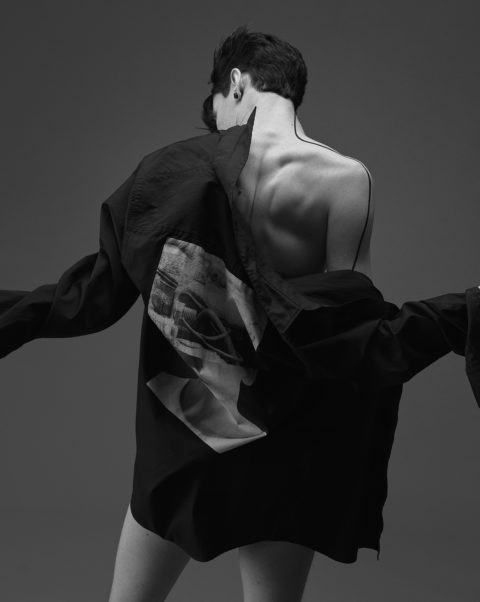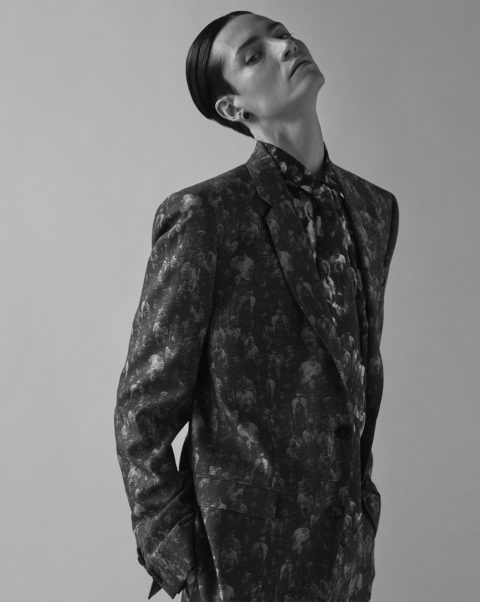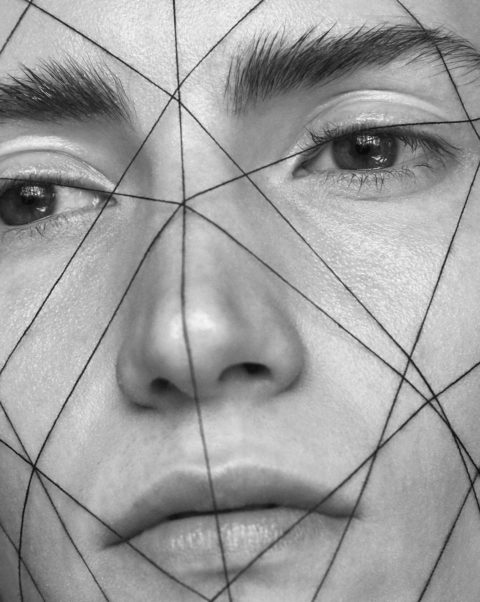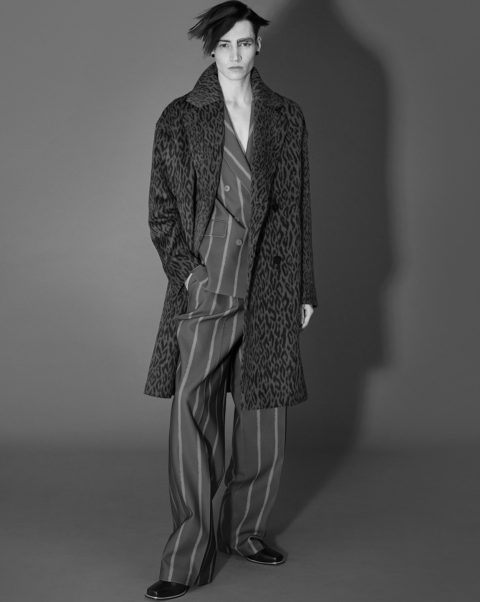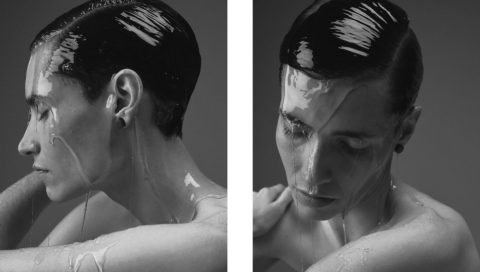Meet Krow, the World’s First Transgender Male Supermodel
The first thing you notice about Krow is his fingers: thin, elongated digits that look as breakable as bone china. “Surgeon’s hands,” my bubbe would have called them, complimenting their fragile elegance. The second thing you notice about Krow is his gaze: dark-brown pools of intensity.
The rest of the things clock in quick succession. Krow is tall and lanky and has a broad face, perfectly symmetrical features and a swoop of dark hair tickling his eyebrows. He looks like the sensitive, soulful boy scribbling song lyrics in the back of every high school math class in North America, the subject of many an emotionally tortured crush. Actually, he kind of looks like Tuxedo Mask. Krow has the same granite jaw, linear eyebrows and emaciated frame (imagine the collective grandmothers of the world crying out “Eat! Eat!”) that captured Sailor Moon’s heart. His profound yet mischievous essence mimics the bad-boy intensity of fellow models Ash Stymest and Cole Mohr—wild-card personalities whose appeal can be traced back to a wicked glint in their eye.
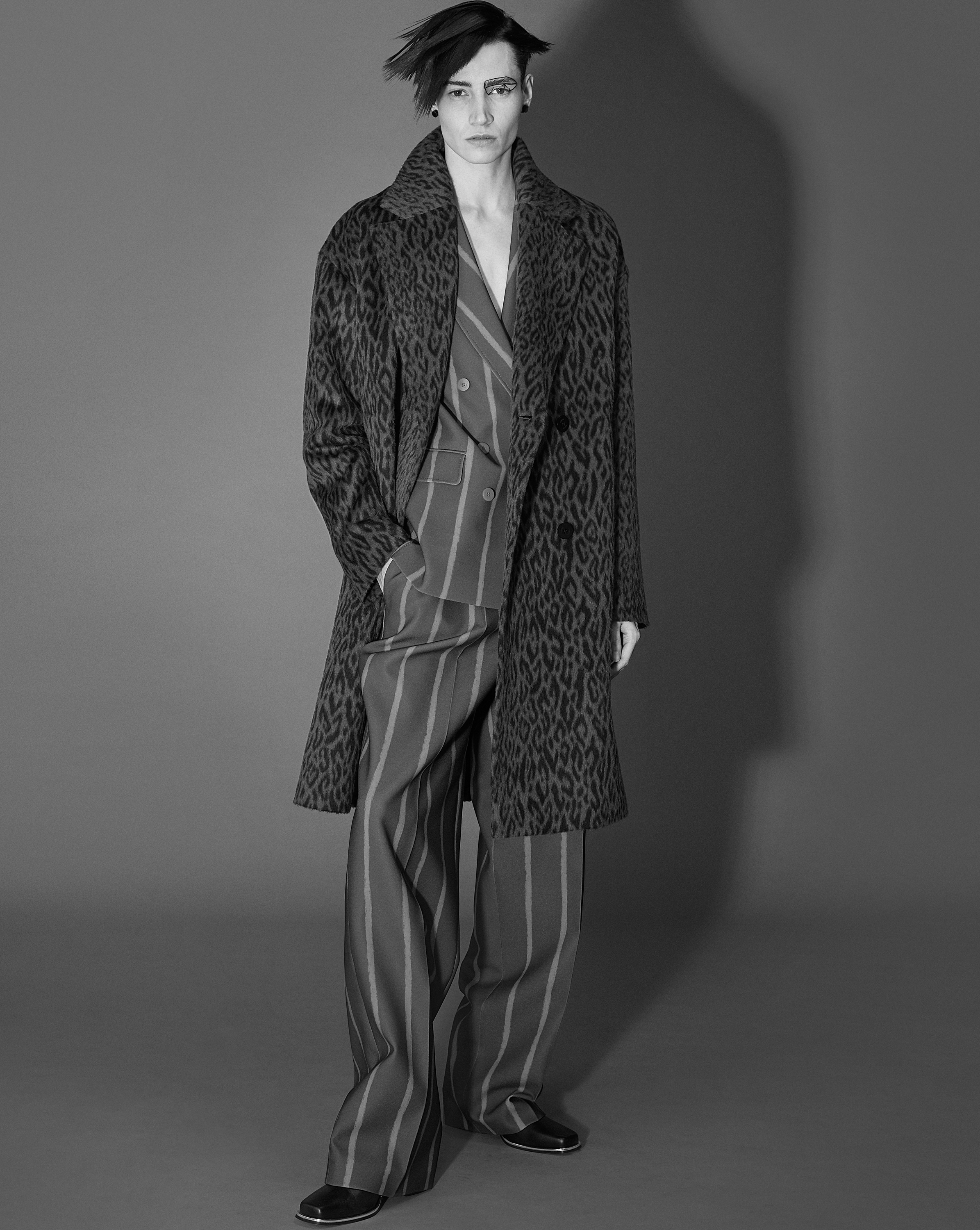
Here’s where I’m supposed to tell you that Krow is a rising star in the modelling world, but that wouldn’t be entirely accurate. In the 11 months since legendary casting director Ashley Brokaw plucked the 23-year-old from relative obscurity to walk in Louis Vuitton’s Spring 2019 show, the Vancouver-based model has walked for Haider Ackermann, Proenza Schouler and Alexander McQueen and graced the covers of Dazed and L’Uomo Vogue. Krow isn’t on the ascent; he’s already on top. His career trajectory mimics the line on a graph that shoots straight up as soon as it appears. When I ask Krow why he has experienced so much success in such a short period of time, he has a simple answer: “It definitely has something to do with me being transgender.”
After being scouted at the age of 12 at a friend’s birthday party, Krow began to model internationally, landing gigs in Japan and China. “Modelling was basically my way of understanding how to act female,” he says. “I learned through fashion how to present myself, how I should dress and how I should do my makeup, but it still wasn’t enough.” After spending his teen years more or less in drag, Krow had had enough. At the age of 18, after a bad experience in China that he declines to describe in further detail, Krow hacked off his glossy ponytail and texted his mother a photo of the limp hair on the floor—a symbolic shedding of the womanhood that had never fit him.
“Modelling was basically my way of understanding how to act female. I learned through fashion how to present myself, how I should dress and how I should do my makeup, but it still wasn’t enough.”
Krow didn’t even realize he could be trans until he learned about cosplay. (Think of it as drag for nerds wherein fans create painstakingly elaborate costumes to assume the identities of their favourite genre characters.) Krow’s favourite characters to cosplay are Prompto, a sort of horny goth from Final Fantasy XV, and Sebastian, a demon who takes the earthly form of a butler, from the Japanese manga Black Butler. If modelling was Krow’s way of learning to be a woman, cosplay was his way of learning to be a man. “Cosplay gave me the freedom to experiment,” he says. Inhabiting male identities for fun in a low-judgment environment helped solidify Krow’s realization that he was, in fact, transgender.
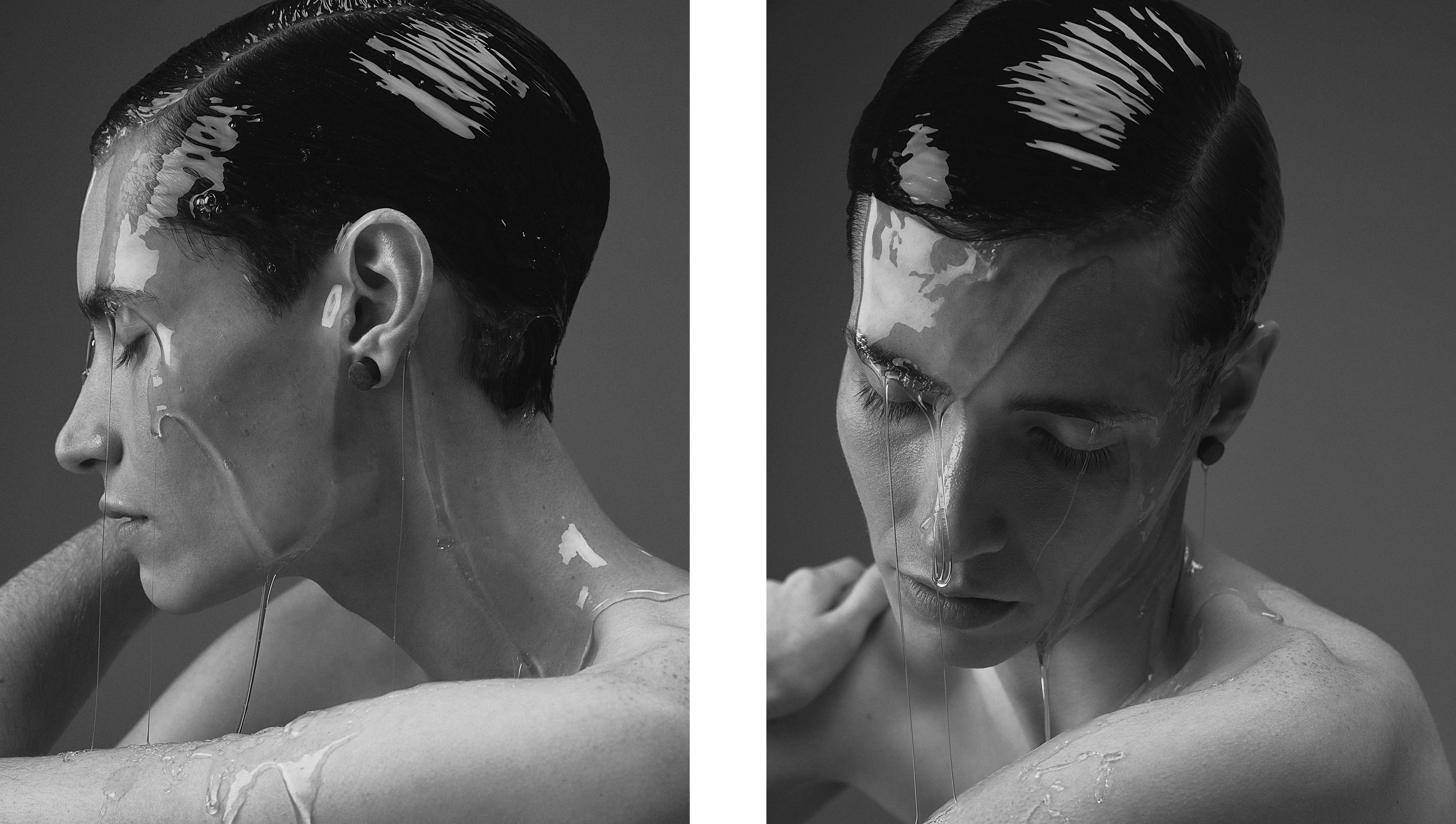
Since the age of 12, he’d been harbouring a nickname that only his closest friends knew about: Krow. The clandestine name became an escape hatch from the outside world, where bullies slung hurtful names like “emo” and “cutter.” Krow found solace in his affinity with the misunderstood bird. “Throughout history, [crows] have been labelled as this bad bird, but they’re beautiful creatures and they’re intelligent,” he says. “Crows in different regions can have different dialects, and they can make tools. They have this amazing potential, but no one really appreciates that because they are scavengers. I always kind of related to that.” When it came time for Krow to pick a name for his new birth certificate (Sex: M), he went with the bird that had been with him all along.
Despite identifying with a misfit bird that populates the realm of gothic horror, Krow is nothing like his brooding, sad-boy persona. Instead, he’s self-effacing and sweet in an awkward way. He speaks matter-of-factly and with the natural ease of someone who has become accustomed to answering casual questions about what might be the most deeply personal decision of his life. Even when describing the pain of suicidal ideation that sucked the colour from his teen years, he doesn’t break, remaining earnest and engaged. He doesn’t care if the brands currently hiring him are doing so to add an LGBTQ-friendly sheen to their public image. “You know what? You can use me, as long as you’re actually helping the community,” he says, without any of the cynicism that often comes along with being the first.
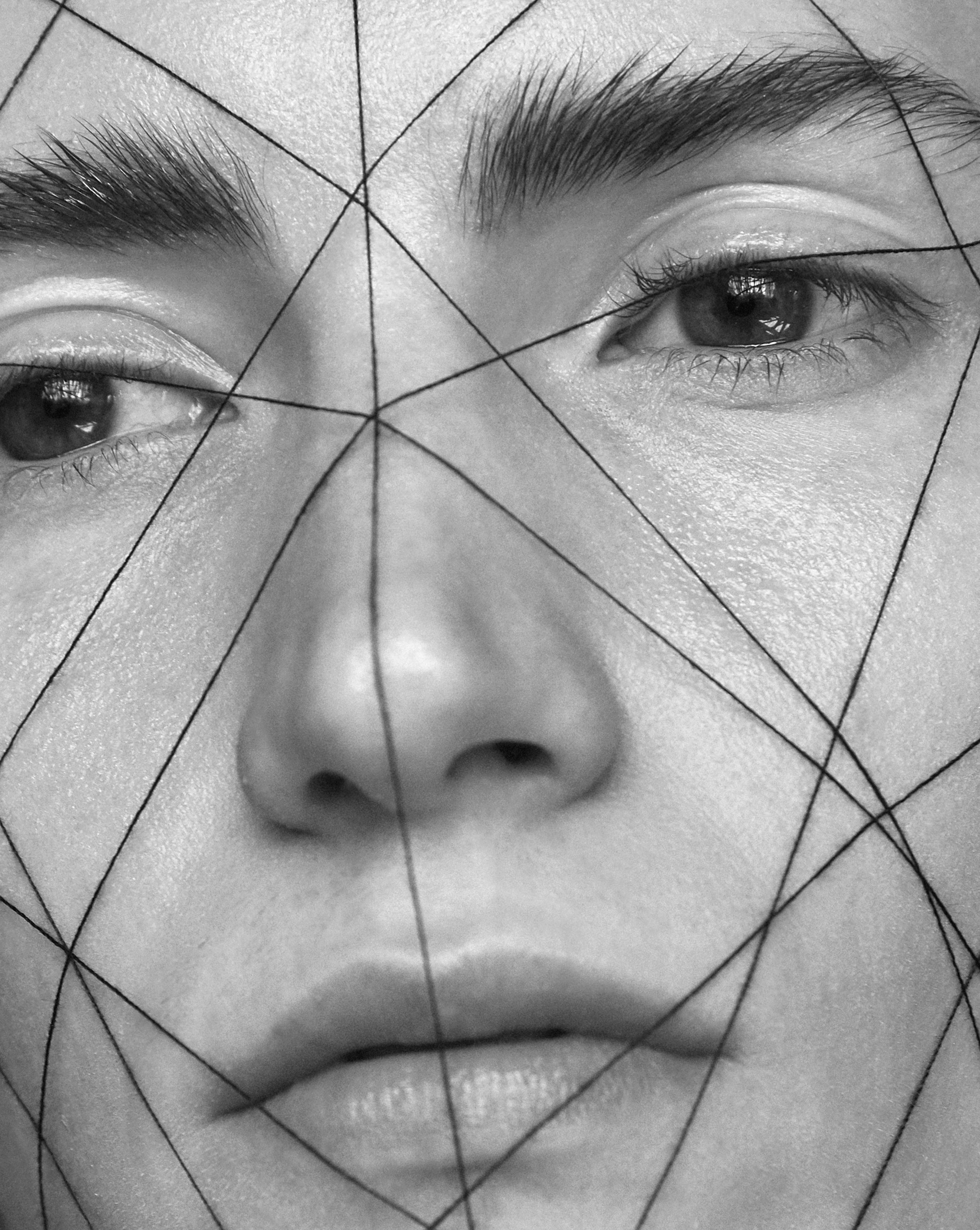
For the past three years, Krow allowed his transition to be filmed for a documentary called Krow’s TRANSformation, which will open at the Raindance Film Festival later this month. Director and producer Gina Hole Lazarowich describes the documentary as a “how to transition” guide for young people. Though trans men have always existed—mid-century jazz musician Billy Tipton was not outed as transgender until after his death—they haven’t always been acknowledged. In contrast to the plethora of radical gay and lesbian literature that sprang forth in the ’70s, Original Plumbing, the first magazine by and for trans men, didn’t exist until 2009. Growing up, Krow says he didn’t have any trans male role models to look up to.
“You know what? You can use me, as long as you’re actually helping the community.”
So why, despite the crossover success of trans women like Andreja Pejic, Dara Allen and Hari Nef, is the visibility of trans men so much smaller? (That is, besides the fact that, according to an American survey, one in four transgender people surveyed have been assaulted because of their identity.) Because, Krow says, when a person comes out as transgender, they forfeit their right to a normal life.
“Once you’re out as transgender, you’re always going to be labelled as a transgender male, not just another man,” he says. “I think a lot of trans men aren’t as open about being transgender because they’re worried about judgment from other men about not being a ‘true man.’ Having confidence in yourself that you’re still a man regardless of what other people say is a really big thing to get over.”
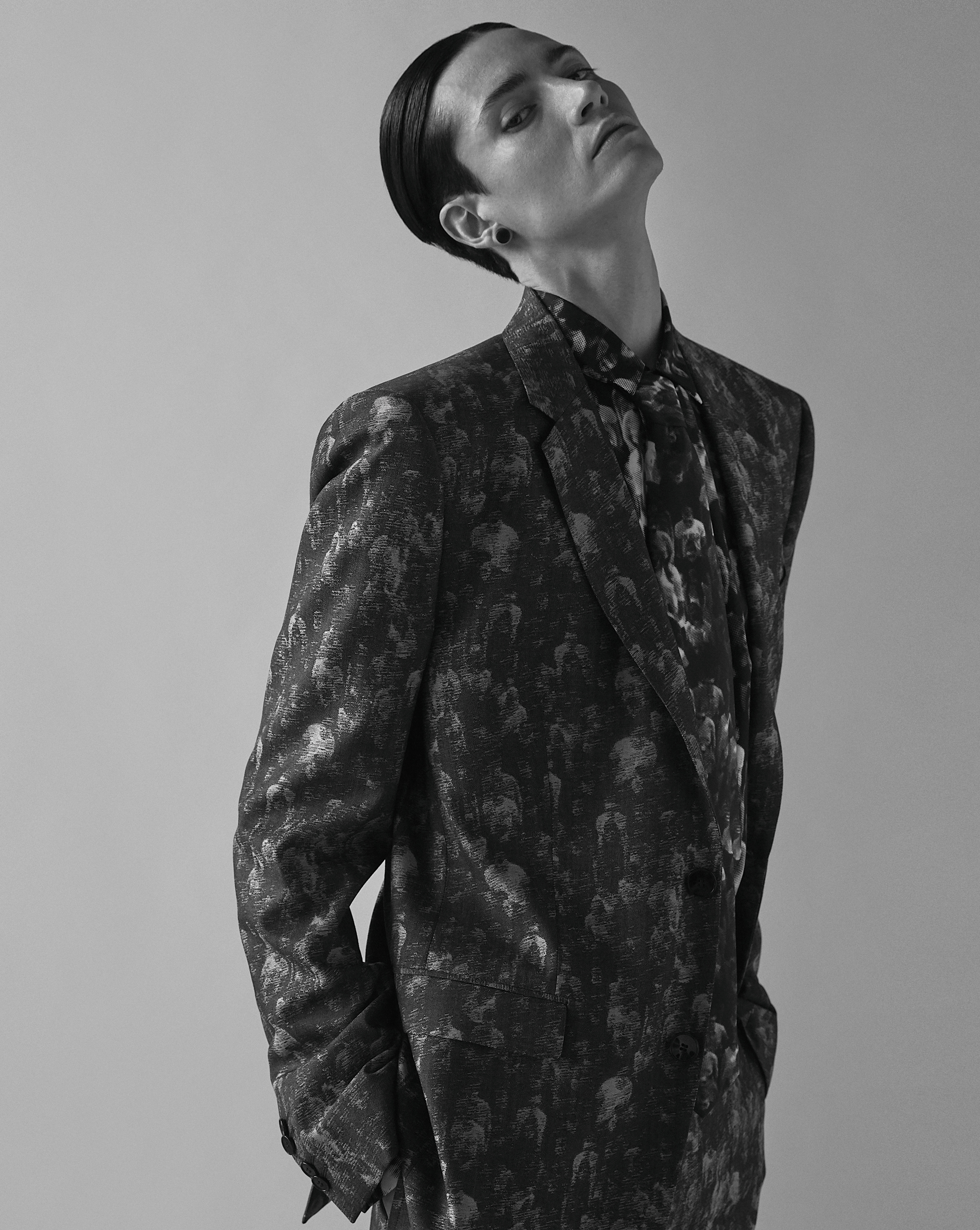
Ironically enough, Krow’s decision to be public about his identity is the very thing that led to his burgeoning career. He had no interest in reviving his modelling post-transition, but Liz Bell, founder of the LizBell modelling agency, remembered that her friend Gina Hole Lazarowich was shooting a documentary about a trans former model and gave her a call. Within a few days, Bell was taking Polaroids of Krow to send to Paris; shortly after, he was officially cast in the Louis Vuitton show.
“I’ve worked with young people for the past 27 years, and I can say that I have seldom, if ever, come across someone as self-assured and confident as Krow,” says Bell, who signed Krow to her agency within hours of meeting him. Nicolas Ghesquière, creative director at Louis Vuitton, calls Krow “a beacon of hope to all generations” and says that “his courage and strength are empowering and force us to revisit the outdated way we once viewed dressing: suits, dresses, male, female.”
It may be odd to attribute Krow’s world domination to nothing more than a fluke, but sometimes that’s just what the universe has in mind. Whatever happens, Krow has already taken flight—it’s up to everyone else to keep up.
The post Meet Krow, the World’s First Transgender Male Supermodel appeared first on FASHION Magazine.
